$7 Billion Additional Solar Energy Grant for Americans
During the Earth Day celebration on April 22, the Biden-Harris administration made a significant announcement, revealing their plan to allocate an additional $7 billion towards an initiative called Solar for All. This substantial budget increase aims to further support lower-income households, particularly in providing access to clean energy resources. The primary goal of the Solar for All initiative is to ensure that low-income families and disadvantaged communities have the opportunity to benefit from cleaner energy sources. By making cleaner energy more accessible, this initiative not only contributes to environmental preservation but also offers families and communities a sustainable and potentially cost-effective energy solution.
How many will benefit from this?
The Solar for All initiative is expected to have a positive impact on more than 900,000 households across the United States. This program is designed to reach and benefit lower-income households and communities, aiming to provide them with access to solar energy and its associated benefits.
How will this help the families and communities?
Access to Solar for All will play a crucial role in reducing the financial barriers to solar panel installations. Making solar energy more affordable will enable families and communities to lower their electricity expenses significantly. This initiative has the potential to not only save money for individuals and households but also to contribute to the overall economic well-being of communities.
Environmental Benefits
One key goal of the Solar for All initiative is to minimize reliance on fossil fuels and transition to renewable, clean energy sources. By utilizing solar panels as the primary energy source, we can effectively decrease greenhouse gas emissions, thereby contributing to a significant reduction in environmental pollution.
Improves air quality
Switching to solar energy can significantly improve air quality by reducing air pollution. Unlike traditional power plants, solar panels do not emit harmful pollutants into the atmosphere. By encouraging more households and communities to adopt solar energy, we can greatly decrease air pollution and enhance the overall quality of the air we breathe.
Why lower-income and disadvantaged communities?
Solar for All is a program designed to provide financial grants to lower-income and marginalized communities that currently do not have access to clean energy sources. The objective of this initiative is to assist these communities in covering the expenses associated with the installation of solar panels. By facilitating access to more affordable solar energy solutions, the program aims to contribute to improving air quality, reducing energy expenses, and enhancing environmental conditions in these communities.
The Solar for All program is a groundbreaking initiative to provide much-needed support to families across the United States. By leveraging the power of solar energy, this program seeks to help households save money on their electricity bills while also contributing to the improvement of air quality and the fight against climate change. This represents a substantial investment in clean energy and environmental justice, reflecting a commitment to a more sustainable future.
Furthermore, the Solar for All program aligns with President Biden's Justice40 Initiative, which is designed to ensure that benefits from federal investments are directed towards disadvantaged communities. As part of this initiative, Solar for All will expand existing low-income solar programs and launch new ones, aiming to reach households in all 50 states, the District of Columbia, Puerto Rico, and various territories. This will significantly increase Tribal communities' access to solar energy. For more information and the complete list of selected applicants, please visit the EPA's Greenhouse Gas Reduction Fund Solar for All website.






